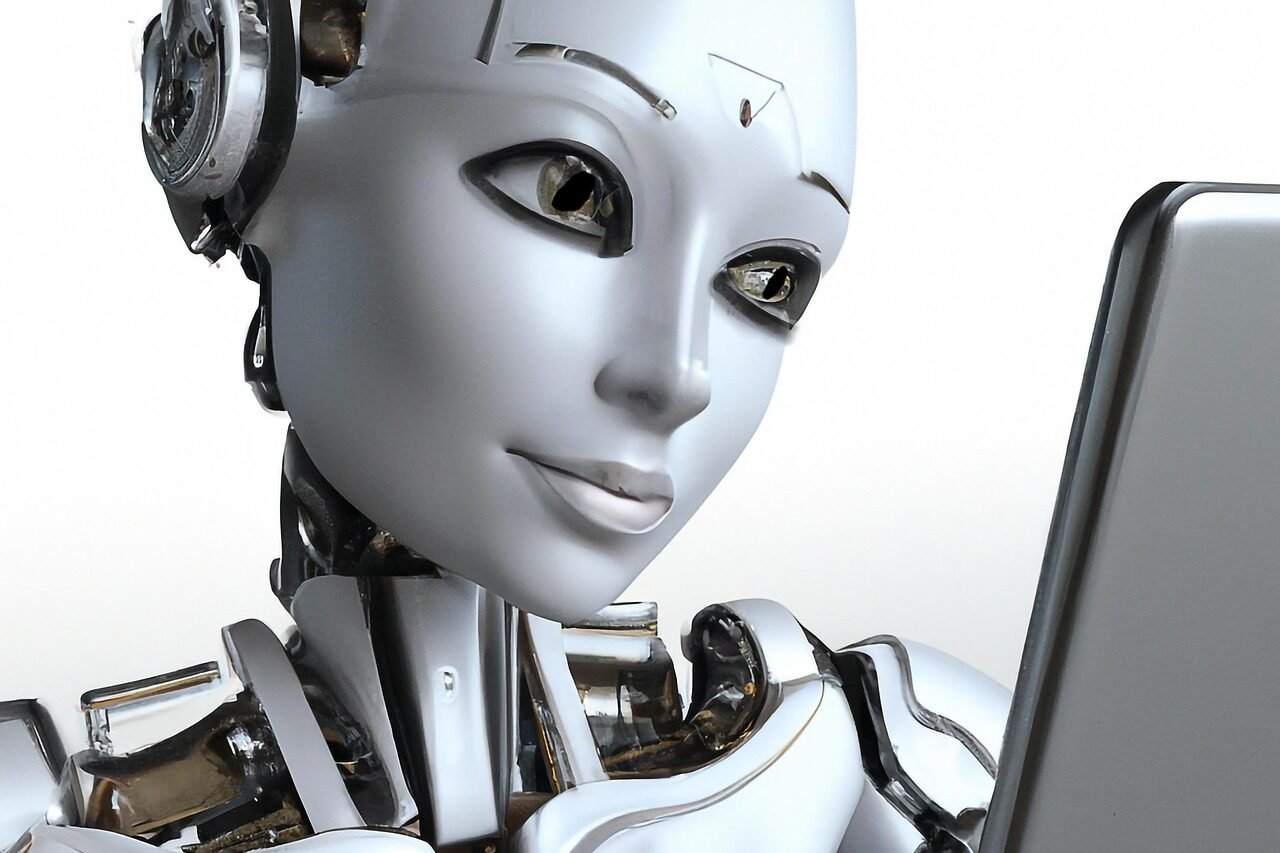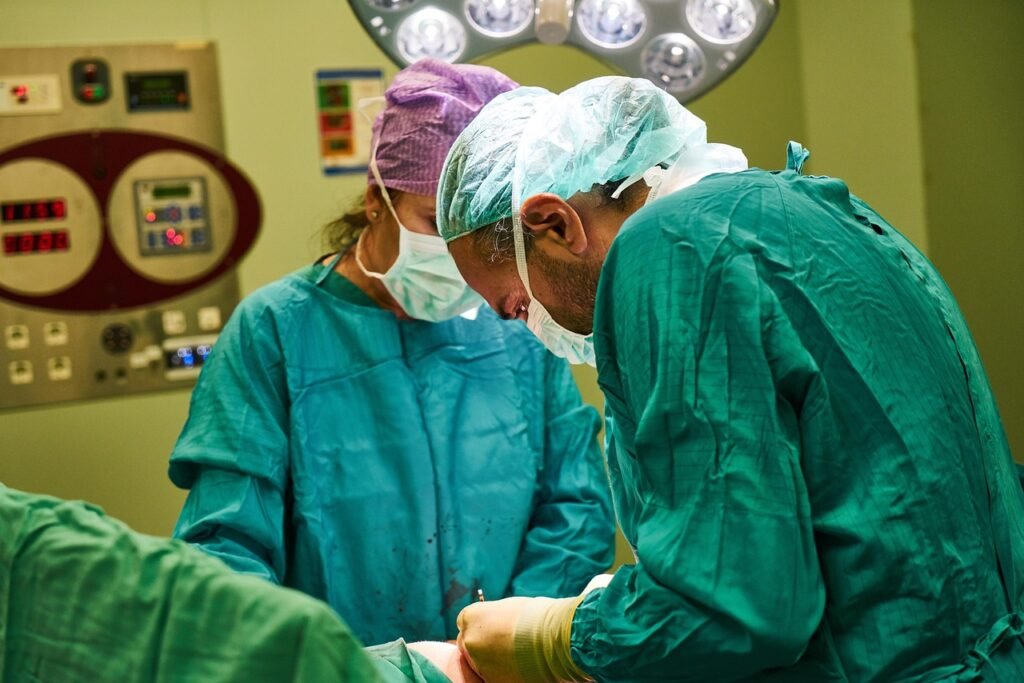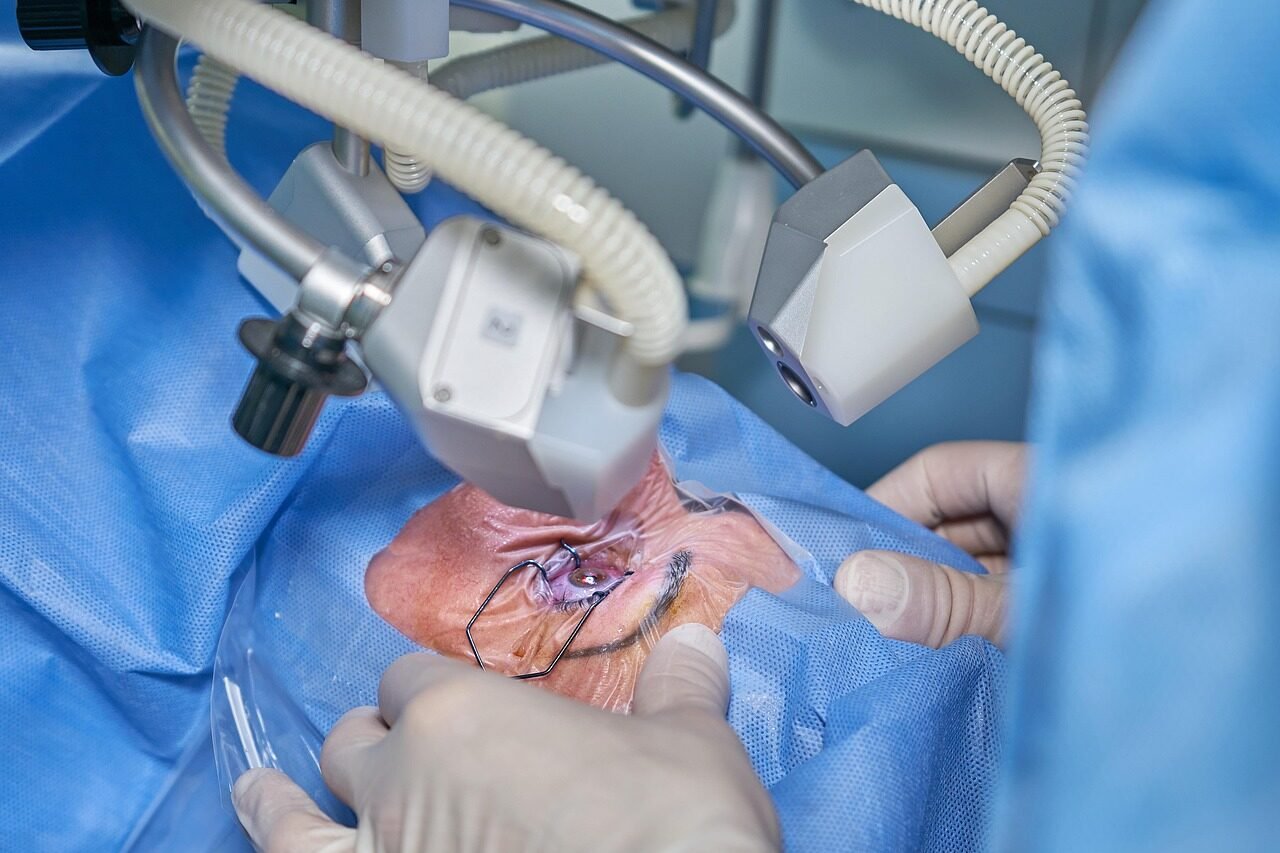The Age of Self-Taught Machines is Here

For decades, robots in surgery were only as good as the doctors controlling them. They followed commands, worked with extreme precision, and helped reduce human error, but they never truly “learned.” That’s changing fast. Thanks to deep learning and reinforcement algorithms, AI-driven robots are teaching themselves the best way to perform complex medical procedures—just like a human surgeon learns through practice.
This isn’t just about speed or efficiency. Machines can process and analyze thousands of surgeries in the time it takes a human to complete one. They refine their skills through trial and error, constantly improving with each attempt. Unlike human doctors, they don’t get tired, they don’t forget, and they don’t let emotions cloud their judgment. It’s both fascinating and unsettling to think that one day, the best surgeon in the world might not be a human at all.
How Can a Robot Learn Surgery Without Human Guidance?
It all starts with a type of AI called reinforcement learning, where an algorithm trains itself by continuously testing and adjusting its actions. Instead of being taught through human demonstrations, the robot watches thousands of real-life surgeries, breaks them down into precise movements, and practices them in virtual simulations. Every time it makes a mistake, it adjusts until it gets it right.
This self-learning process is what makes AI-powered surgical robots so different from traditional robotic systems. They don’t just replicate what humans do—they improve on it. They detect patterns in surgeries that even expert surgeons might overlook and develop techniques that could one day surpass human capabilities. It’s like giving a machine the ability to learn, experiment, and evolve, all without direct human instruction.
The Potential to Outperform Human Surgeons
At first, AI-powered surgical robots might seem like just another tool to assist doctors, but their potential goes far beyond that. These machines can learn from millions of procedures, absorb medical research at a pace no human can match, and execute precise, error-free movements every single time. While human surgeons train for years and rely on experience, AI can continuously refine its skills in a fraction of the time.
One of the biggest advantages is consistency. Human surgeons, no matter how skilled, have off days. Fatigue, stress, and even small distractions can lead to mistakes. But an AI-driven surgical robot? It performs at peak precision every time. It doesn’t tremble, it doesn’t lose focus, and it doesn’t hesitate. That level of reliability could redefine what we consider “the best” in the medical world.
The Ethical Dilemma: Would You Trust a Machine With Your Life?
Here’s where things get tricky. No matter how advanced AI becomes, there’s something unsettling about putting your life in the hands of a machine. Can a robot truly understand the complexity of human emotions, unpredictable complications, or the moral weight of difficult surgical decisions? Even if an AI system is statistically more accurate than a human, would patients feel comfortable without a human surgeon overseeing the procedure?
There’s also the issue of accountability. If a human surgeon makes a mistake, they can be held responsible. But if an AI-powered robot makes a critical error, who takes the blame? The developers? The hospital? The AI itself? These are questions the medical industry is still struggling to answer, and they might determine how widely robotic surgeons are accepted in the future.
Could AI Surgeons Reduce Healthcare Inequality?
One of the most promising aspects of AI-driven surgery is accessibility. Right now, top-tier surgical expertise is concentrated in major hospitals, often in wealthy countries. If AI-powered robots can perform complex procedures with the same (or better) accuracy as top human surgeons, they could be deployed in regions with a shortage of medical professionals.
Imagine a future where rural clinics and developing countries have access to the same level of surgical expertise as the best hospitals in the world. Patients wouldn’t have to travel long distances for specialized care, and life-saving surgeries could become more affordable and widely available. AI surgeons have the potential to revolutionize global healthcare—but only if the technology is implemented with equity in mind.
The Human Touch: What AI Can’t Replace

Despite all the advancements in AI-driven surgery, there’s one thing technology still struggles to replicate: human intuition. Medicine isn’t just about precision—it’s about understanding the patient as a whole, recognizing subtle signs that might not show up in a dataset, and making judgment calls based on experience and empathy.
While AI can analyze millions of cases and identify patterns that humans might miss, it still lacks the instinctual decision-making that comes from years of hands-on experience. A surgeon might sense something is wrong based on a patient’s behavior, a slight change in their vitals, or even a gut feeling. Can a machine ever truly replace that? Maybe not. But it could complement human expertise in ways we’ve never imagined before.
The Fear of Job Loss: Are Human Surgeons at Risk?
Whenever automation takes over a field, people worry about job losses—and surgery is no exception. If AI-driven robots can perform surgeries faster, safer, and more accurately than humans, will hospitals still need human surgeons? The reality is more nuanced than a simple yes or no.
Rather than replacing human surgeons entirely, AI is more likely to shift their role. Instead of performing every step of a procedure, surgeons may act as supervisors, stepping in only when needed. This could mean fewer hands-on surgeries but more focus on complex decision-making, training AI models, and ensuring ethical and medical standards are upheld. Surgeons won’t disappear, but their job descriptions might change dramatically.
The Risk of Over-Reliance on AI
As impressive as AI-driven surgery sounds, there’s a real danger in relying on it too much. No technology is infallible. AI systems are only as good as the data they learn from, and if that data is flawed, the results could be disastrous. What happens if an AI misinterprets a rare condition or makes a mistake no one catches in time?
This is why most experts argue for a hybrid approach—where AI is a powerful assistant rather than the sole decision-maker. No matter how advanced the technology becomes, there needs to be a safety net. Human oversight is crucial, especially in life-or-death situations where even a tiny miscalculation can have catastrophic consequences.
AI Surgeons and the Future of Personalized Medicine
One of AI’s most exciting possibilities in surgery isn’t just automation—it’s personalization. Every patient is unique, and AI can analyze an individual’s genetic data, medical history, and real-time vitals to tailor surgeries to their specific needs. Imagine a robotic surgeon adjusting its approach on the fly to suit your exact anatomy, minimizing risks and optimizing outcomes.
This could mark the beginning of hyper-personalized medical treatment, where surgeries aren’t just standardized procedures but finely tuned interventions based on your body’s unique blueprint. In the future, AI might not only perform the surgery but also help predict complications before they even arise, making medicine more proactive than ever before.
The Challenge of AI Bias in Surgery
AI is often praised for its objectivity, but the truth is, it can be just as biased as the data it’s trained on. If an AI system learns from datasets that primarily feature patients of a certain demographic, it may struggle with others. This is already a problem in medicine, where certain conditions are misdiagnosed more frequently in women and minorities due to biased training data.
With AI-driven surgery, the stakes are even higher. If a robotic surgeon hasn’t been trained on diverse patient cases, it could lead to unintended consequences, such as misjudging anatomical differences or making errors that disproportionately affect certain populations. Ethical AI development must ensure diversity in training data so that surgical robots truly serve everyone—not just a select group.
Will AI Surgery Ever Be Fully Autonomous?
Right now, AI-driven robots are mostly used as surgical assistants rather than independent surgeons. They can make precise incisions, stitch wounds, and even perform delicate procedures like eye surgery—but always under human supervision. The big question is: will we ever reach a point where robots can operate with zero human involvement?
Technologically, we might get there sooner than expected. But legally and ethically, it’s a much bigger challenge. Before fully autonomous AI surgeons become mainstream, there would need to be significant trust built into the system, strict regulations, and a way to handle liability. It’s one thing to let a self-driving car take over the road—it’s another to let a self-learning machine hold a scalpel to a human body with no one watching.
How Soon Could AI Surgeons Become the Norm?
The idea of AI performing major surgeries still feels futuristic, but it’s closer than most people think. AI is already assisting in real-world procedures, and as hospitals continue to integrate robotics into operating rooms, the shift is happening faster than we realize. Some experts predict that within the next 10–15 years, fully autonomous AI surgeons could be approved for routine procedures.
However, regulatory hurdles, patient trust, and ethical concerns could slow things down. Just because the technology is available doesn’t mean society is ready to embrace it. The transition will likely be gradual, starting with AI handling simple, low-risk procedures before moving on to more complex surgeries. The question isn’t if this will happen—but when we’ll be ready to accept it.
The Future of Surgery: A Human-AI Partnership

Instead of thinking about AI replacing human surgeons, perhaps the future is about collaboration. AI excels at precision, speed, and data processing, while human surgeons bring intuition, experience, and empathy. The most effective surgical teams of the future might not be just humans or just robots, but a blend of both.
Imagine an AI that performs the bulk of a surgery with microscopic accuracy while a human surgeon monitors, intervenes when necessary, and provides the emotional reassurance that only a person can offer. This partnership could redefine medicine, making surgeries safer, faster, and more personalized than ever before. The best surgeon of the future may not be a machine or a human—but a perfect combination of both.
